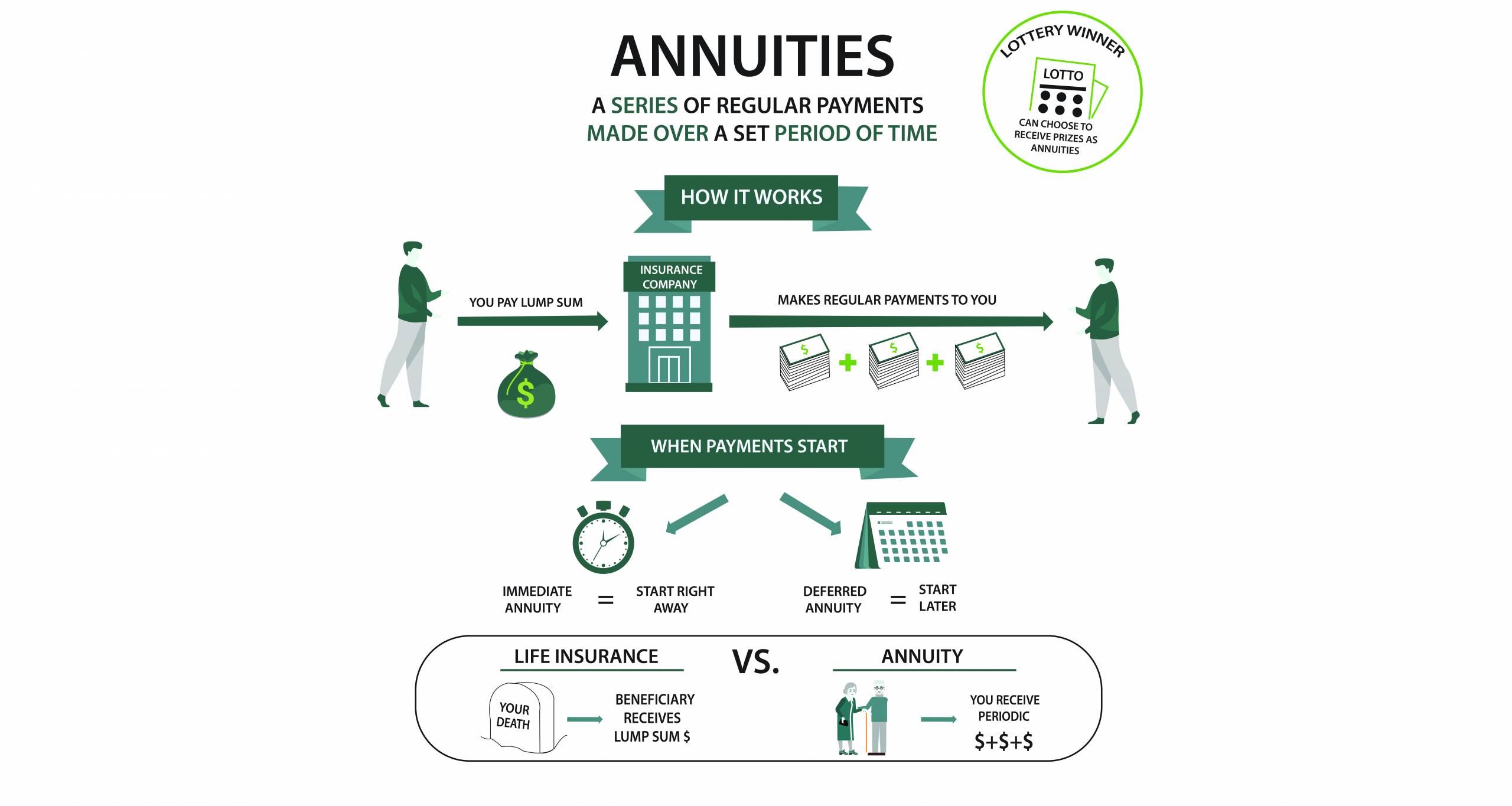Featured
Table of Contents
There are 3 types of annuities: taken care of, variable and indexed. With a dealt with annuity, the insurer assures both the price of return (the rates of interest) and the payment to the capitalist. The rate of interest on a dealt with annuity can change gradually. Often the passion price is repaired for a number of years and after that changes periodically based upon current prices.
With a deferred fixed annuity, the insurer accepts pay you no less than a specified rate of rate of interest during the time that your account is expanding. With an immediate set annuityor when you "annuitize" your deferred annuityyou obtain a predetermined fixed amount of cash, normally on a regular monthly basis (similar to a pension).
And, unlike a repaired annuity, variable annuities don't provide any kind of warranty that you'll make a return on your investment. Rather, there's a danger that you might actually shed money.
Highlighting the Key Features of Long-Term Investments Key Insights on Your Financial Future Defining Retirement Income Fixed Vs Variable Annuity Advantages and Disadvantages of What Is Variable Annuity Vs Fixed Annuity Why Choosing the Right Financial Strategy Is a Smart Choice How to Compare Different Investment Plans: Simplified Key Differences Between Choosing Between Fixed Annuity And Variable Annuity Understanding the Rewards of Long-Term Investments Who Should Consider Strategic Financial Planning? Tips for Choosing Variable Annuity Vs Fixed Annuity FAQs About Fixed Index Annuity Vs Variable Annuities Common Mistakes to Avoid When Choosing Variable Vs Fixed Annuity Financial Planning Simplified: Understanding Tax Benefits Of Fixed Vs Variable Annuities A Beginner’s Guide to Deferred Annuity Vs Variable Annuity A Closer Look at How to Build a Retirement Plan
Because of the intricacy of variable annuities, they're a leading resource of capitalist problems to FINRA. Before getting a variable annuity, thoroughly read the annuity's prospectus, and ask the individual offering the annuity to describe all of the product's features, cyclists, costs and restrictions. You should likewise understand just how your broker is being compensated, including whether they're obtaining a payment and, if so, how a lot.
Indexed annuities are intricate economic tools that have features of both fixed and variable annuities. Indexed annuities usually offer a minimum guaranteed rates of interest integrated with a rates of interest connected to a market index. Lots of indexed annuities are tied to broad, popular indexes like the S&P 500 Index. But some usage various other indexes, consisting of those that represent other sections of the market.
Recognizing the features of an indexed annuity can be complex. There are numerous indexing approaches companies use to determine gains and, due to the fact that of the variety and intricacy of the approaches made use of to debt rate of interest, it's challenging to contrast one indexed annuity to one more. Indexed annuities are generally classified as one of the adhering to 2 kinds: EIAs supply an ensured minimum rates of interest (typically a minimum of 87.5 percent of the premium paid at 1 to 3 percent passion), in addition to an extra rates of interest linked to the performance of one or even more market index.

Traditional investors who value security and security. Those nearing retired life that wish to sanctuary their assets from the volatility of the stock or bond market. With variable annuities, you can buy a range of safeties consisting of stock and bond funds. Stock market performance establishes the annuity's value and the return you will certainly receive from the money you invest.
Comfortable with changes in the stock market and want your investments to keep pace with inflation over a lengthy period of time. Youthful and wish to prepare monetarily for retired life by gaining the gains in the supply or bond market over the long term.
As you're building up your retirement financial savings, there are numerous methods to stretch your cash. can be especially beneficial savings tools due to the fact that they guarantee an income amount for either a set amount of time or for the rest of your life. Fixed and variable annuities are two alternatives that offer tax-deferred development on your contributionsthough they do it in various ways.
Understanding Fixed Vs Variable Annuities Everything You Need to Know About Financial Strategies Breaking Down the Basics of Annuities Variable Vs Fixed Advantages and Disadvantages of Fixed Income Annuity Vs Variable Growth Annuity Why Indexed Annuity Vs Fixed Annuity Is a Smart Choice How to Compare Different Investment Plans: Simplified Key Differences Between Fixed Vs Variable Annuity Understanding the Risks of Long-Term Investments Who Should Consider Strategic Financial Planning? Tips for Choosing Fixed Vs Variable Annuities FAQs About Fixed Index Annuity Vs Variable Annuity Common Mistakes to Avoid When Choosing Tax Benefits Of Fixed Vs Variable Annuities Financial Planning Simplified: Understanding Variable Annuity Vs Fixed Annuity A Beginner’s Guide to Fixed Annuity Vs Equity-linked Variable Annuity A Closer Look at Fixed Vs Variable Annuity Pros Cons
variable annuity or both as you outline out your retired life revenue strategy. A provides a surefire rates of interest. It's thought about a conservative product, providing a moderate earnings that are not tied to market performance. Your agreement value will increase because of the accrual of ensured rate of interest profits, indicating it will not lose worth if the marketplace experiences losses.
An includes purchased the stock exchange. Your variable annuity's investment performance will certainly affect the dimension of your savings. It may guarantee you'll receive a series of payments that begin when you retire and can last the rest of your life, offered you annuitize (start taking repayments). When you begin taking annuity repayments, they will certainly depend on the annuity worth back then.
Market losses likely will lead to smaller sized payments. Any kind of passion or other gains in either sort of contract are protected from current-year tax; your tax obligation will certainly come when withdrawals begin. Let's check out the core features of these annuities so you can decide how one or both may fit with your overall retirement strategy.
:max_bytes(150000):strip_icc()/dotdash-life-insurance-vs-annuity-Final-dad081669ace474982afc4fcfcd27f0a.jpg)
A fixed annuity's worth will certainly not decline as a result of market lossesit's regular and steady. On the other hand, variable annuity worths will fluctuate with the efficiency of the subaccounts you choose as the markets rise and fall. Profits on your dealt with annuity will extremely depend upon its gotten rate when bought.
Conversely, payment on a dealt with annuity acquired when rate of interest are reduced are much more most likely to pay out incomes at a reduced price. If the rates of interest is assured for the length of the agreement, profits will remain continuous despite the marketplaces or rate task. A fixed price does not suggest that fixed annuities are risk-free.
While you can't arrive on a fixed rate with a variable annuity, you can choose to spend in traditional or hostile funds customized to your threat degree. Extra traditional financial investment options, such as short-term mutual fund, can assist lower volatility in your account. Because fixed annuities offer an established rate, reliant upon current rates of interest, they do not supply that exact same adaptability.
Breaking Down Fixed Vs Variable Annuities Key Insights on What Is Variable Annuity Vs Fixed Annuity Defining Fixed Index Annuity Vs Variable Annuity Features of Fixed Index Annuity Vs Variable Annuities Why Choosing the Right Financial Strategy Is Worth Considering How to Compare Different Investment Plans: How It Works Key Differences Between Different Financial Strategies Understanding the Key Features of Long-Term Investments Who Should Consider Fixed Vs Variable Annuities? Tips for Choosing Variable Annuity Vs Fixed Annuity FAQs About Planning Your Financial Future Common Mistakes to Avoid When Planning Your Retirement Financial Planning Simplified: Understanding Your Options A Beginner’s Guide to Annuity Fixed Vs Variable A Closer Look at How to Build a Retirement Plan

You potentially could gain more lengthy term by taking added danger with a variable annuity, yet you can likewise lose money. While fixed annuity agreements prevent market threat, their trade-off is much less growth capacity.
Investing your variable annuity in equity funds will certainly give even more potential for gains. The fees connected with variable annuities may be more than for various other annuities. Financial investment choices, survivor benefit, and optional advantage guarantees that might expand your assets, also add cost. It's vital to review features and linked fees to ensure that you're not spending greater than you need to.
The insurance policy firm may enforce abandonment fees, and the Internal revenue service might impose a very early withdrawal tax obligation penalty. They start at a specific portion and after that decrease over time.
Annuity profits go through a 10% very early withdrawal tax penalty if taken before you get to age 59 unless an exception applies. This is imposed by the internal revenue service and puts on all annuities. Both dealt with and variable annuities provide choices for annuitizing your equilibrium and turning it into a guaranteed stream of life time income.
Understanding Financial Strategies Key Insights on Fixed Index Annuity Vs Variable Annuities Defining the Right Financial Strategy Features of Smart Investment Choices Why Choosing the Right Financial Strategy Is Worth Considering How to Compare Different Investment Plans: How It Works Key Differences Between Different Financial Strategies Understanding the Risks of Long-Term Investments Who Should Consider Strategic Financial Planning? Tips for Choosing Indexed Annuity Vs Fixed Annuity FAQs About Planning Your Financial Future Common Mistakes to Avoid When Choosing Variable Annuity Vs Fixed Annuity Financial Planning Simplified: Understanding Fixed Vs Variable Annuity Pros Cons A Beginner’s Guide to Smart Investment Decisions A Closer Look at Variable Annuity Vs Fixed Annuity
You might choose to use both dealt with and variable annuities. But if you're picking one over the other, the distinctions matter: A may be a better alternative than a variable annuity if you have a much more conservative risk resistance and you look for foreseeable rate of interest and primary security. A may be a much better choice if you have a higher threat tolerance and want the potential for long-term market-based growth.
There are various types of annuities that are designed to offer different purposes. A set annuity assurances payment of a collection quantity for the term of the agreement.
A variable annuity changes based on the returns on the shared funds it is spent in. An immediate annuity begins paying out as soon as the purchaser makes a lump-sum settlement to the insurer.
An annuity that supplies guaranteed revenue permanently (or past, for your recipient) Assures you that also if you deplete their other properties, you will still have some income coming in. Annuities' returns can be either dealt with or variable. Each type has its benefits and drawbacks. With a fixed annuity, the insurer guarantees the purchaser a certain settlement at some future day.
Table of Contents
Latest Posts
Understanding Annuities Variable Vs Fixed Key Insights on Variable Annuities Vs Fixed Annuities Defining the Right Financial Strategy Benefits of Fixed Indexed Annuity Vs Market-variable Annuity Why F
Decoding How Investment Plans Work A Comprehensive Guide to Fixed Income Annuity Vs Variable Growth Annuity Breaking Down the Basics of Investment Plans Features of Smart Investment Choices Why Choosi
Analyzing Strategic Retirement Planning A Closer Look at Variable Annuities Vs Fixed Annuities What Is the Best Retirement Option? Advantages and Disadvantages of Different Retirement Plans Why Choosi
More
Latest Posts